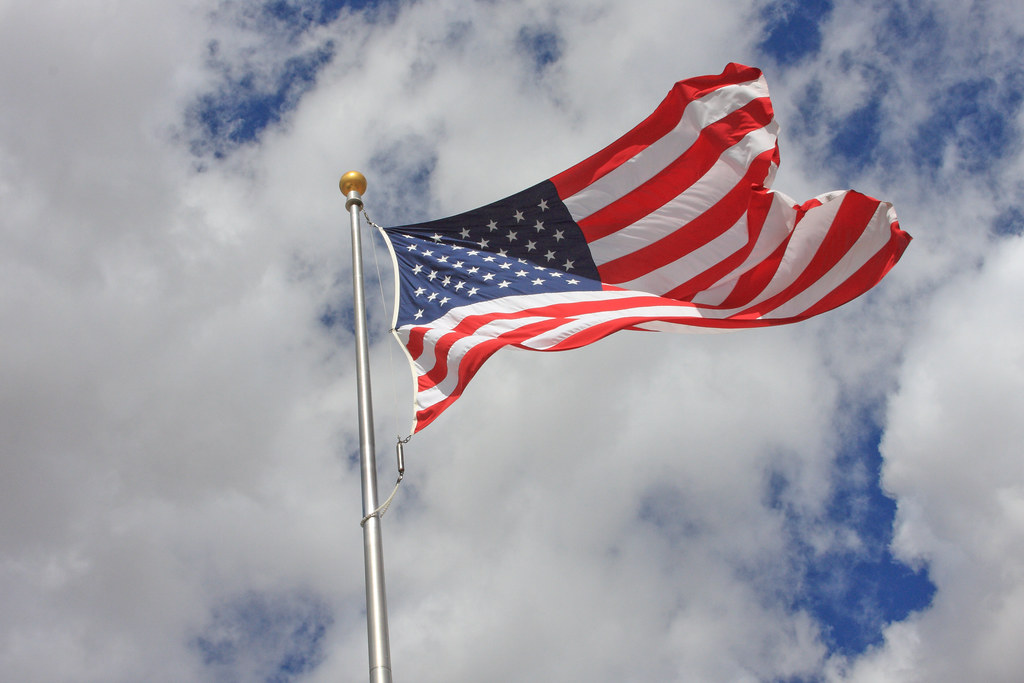In a startling turn of events, Libya, the North African nation known more for its tumultuous political climate than tourism, is expecting a sudden influx of American vacationers. This unprecedented surge in demand for Libyan tourism is not the result of a radical rebranding of Libya’s image, nor an enthusiastic endorsement from a celebrity influencer. Instead, it’s due to a revolutionary new policy introduced by the US government: the Unexpected Migrant Vacation Packages.
The Unexpected Migrant Vacation Packages, colloquially known as UMVP, is the brainchild of the U.S. Department of Homeland Security. The plan seeks to offer American citizens the opportunity to live and work in Libya for a period of six months to one year, in an effort to cultivate empathy and understanding for the trials experienced by migrants.
“Americans have been leading the world in many things: football, fast food, and of course, freedom. But one area where we have lagged behind is our understanding of the immigrant experience,” said DHS Director Hank T. Farnsworth, during a press conference in Washington D.C., “The UMVP aims to change that. We believe that by living the migrant experience, our citizens will grow closer as a nation.”
The logistics of the UMVP are currently under wraps, but leaked documents suggest that participating Americans will live in Libya for a specified period, where they will have the chance to work in local industries, learn Arabic, and engage with Libyan culture and lifestyle. They will not, however, be permitted to stay in any luxury accommodations or use any form of privileged transport, in order to obtain a ‘genuine’ migrant experience.
The pressure is now on Libya to transform its infrastructure to accommodate an avalanche of American tourists. Libya, a country that has long been overlooked by the international travel community, now finds itself in the global spotlight. Local officials have begun planning for the sudden tourism boom, including developments in housing, transportation, and cultural education to handle the influx.
The UMVP aims to change that. We believe that by living the migrant experience, our citizens will grow closer as a nation.
“Libya is ready to welcome our American friends,” said Libyan Minister of Tourism, Fathi Bashagha. “We will show them the beauty of our country, and perhaps they will gain a true understanding of what it means to be a migrant.”
As the world watches keenly, the fate of this groundbreaking social experiment hangs in the balance. Whether the Unexpected Migrant Vacation Packages will bridge the empathy gap or cause further divisions remains to be seen. The only certainty is that a quiet, overlooked corner of North Africa will soon find itself at the center of global attention…
Not everyone, however, is as excited about the UMVP. Critics argue that the program amounts to little more than ‘migrant tourism’, trivializing the hardships and struggles faced by immigrants.
“The UMVP is a misguided attempt at fostering empathy,” said Professor Louisa Martinez of the University of California. “It reduces the lived experiences of migrants to a package tour. The plight of a migrant cannot be understood through a government-sponsored vacation.”
Despite the backlash, the DHS remains firm in its commitment to the UMVP. Moreover, the department is considering expanding the program to other parts of the world to provide a broader perspective on the migrant experience.
Libya is ready to welcome our American friends," said Libyan Minister of Tourism, Fathi Bashagha.
“We’re not just sending Americans to Libya,” Farnsworth said, responding to critics. “We’re planning to extend the UMVP to several regions worldwide - Syria, Afghanistan, Venezuela. These are all places with rich histories and cultures that Americans can learn from.”
Farnsworth also assured that the program would not gloss over the harsh realities faced by immigrants, stating, “This isn’t a vacation in the traditional sense. There are no pool-side cocktails or room service. We’re offering a chance to live, work, and struggle, just like immigrants do.”
Back in Libya, preparations are already underway, with construction crews working round-the-clock to build modest accommodations for the incoming American tourists. Language schools are also cropping up, aiming to teach the new arrivals Arabic in record time.
Bashagha is optimistic about the potential impact of the program. “We hope that by experiencing life as a migrant firsthand, Americans will return home with a newfound respect for the tenacity and resilience of immigrants,” he said. “Maybe then, the narrative surrounding immigration will change for the better.”
But when asked if he would be willing to join the UMVP and live in the United States as a migrant for a period of time, Bashagha laughed. “No, thank you,” he said. “I have seen enough of the American migrant experience on the news.”
As the date of the program’s launch draws closer, all eyes will be on Libya and the first batch of American UMVP participants. Will they leave with a profound understanding of the migrant journey, or will they simply be desperate for a return to the comforts of home? Only time will tell.
Indeed, the UMVP is a bold, if not unusual, endeavor. Its success, or failure, could change the discourse on immigration in the United States and around the world. In the meantime, Libya braces itself for what could be its biggest tourism boom yet - all thanks to an unexpected vacation package from the American government.

